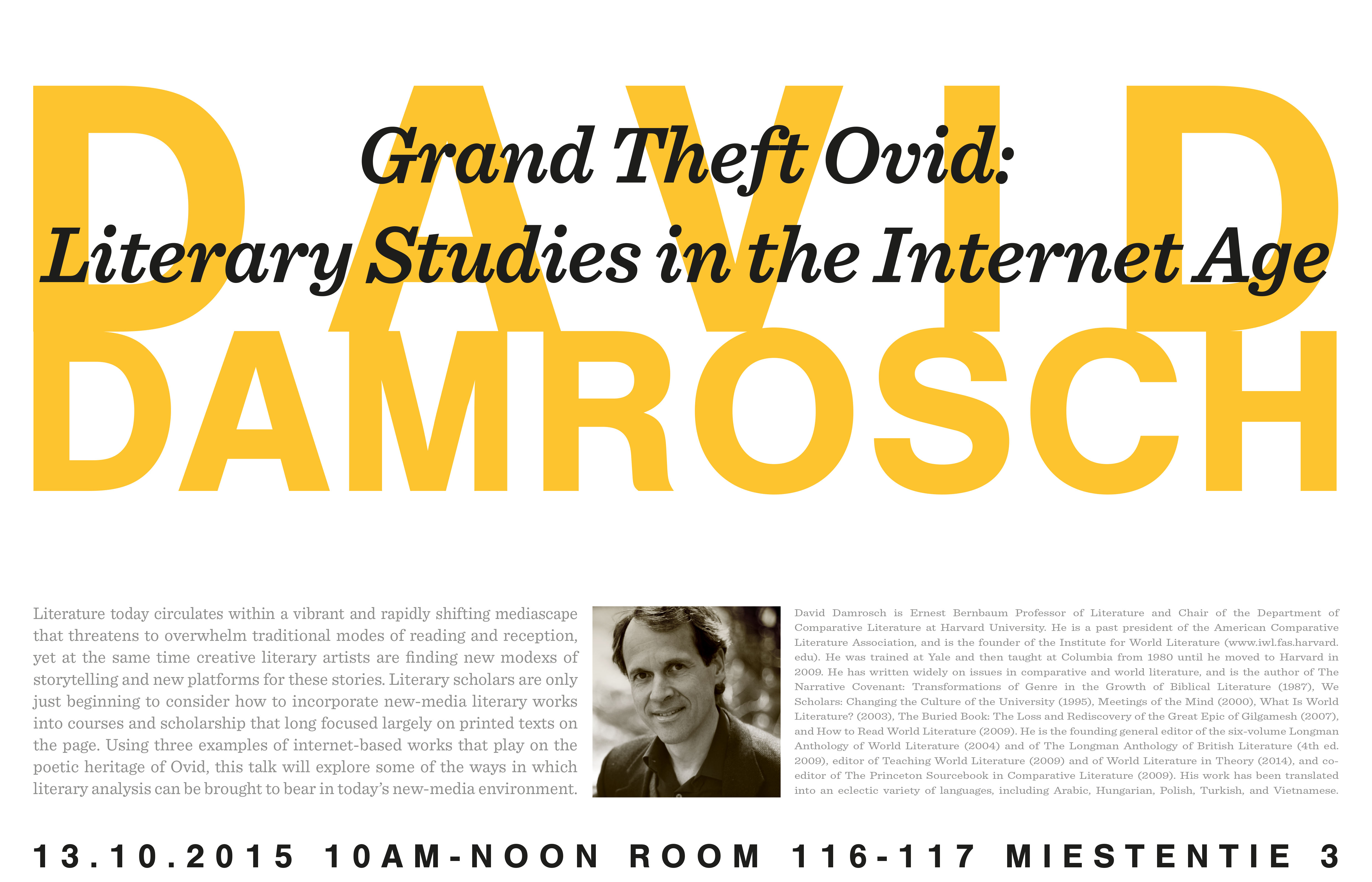David Damrosch: Grand Theft Ovid - Literary Studies in the Internet Age
This talk will explore some of the ways in which literary analysis can be brought to bear in today’s new-media environment.

Welcome everyone!
Literature today circulates within a vibrant and rapidly shifting mediascape that threatens to overwhelm traditional modes of reading and reception, yet at the same time creative literary artists are finding new modes of storytelling and new platforms for these stories. Literary scholars are only just beginning to consider how to incorporate new-media literary works into courses and scholarship that long focused largely on printed texts on the page. Using three examples of internet-based works that play on the poetic heritage of Ovid, this talk will explore some of the ways in which literary analysis can be brought to bear in today’s new-media environment.
David Damrosch is Ernest Bernbaum Professor of Literature and Chair of the Department of Comparative Literature at Harvard University. He is a past president of the American Comparative Literature Association, and is the founder of the Institute for World Literature (www.iwl.fas.harvard.edu). He was trained at Yale and then taught at Columbia from 1980 until he moved to Harvard in 2009. He has written widely on issues in comparative and world literature, and is the author of The Narrative Covenant: Transformations of Genre in the Growth of Biblical Literature (1987), We Scholars: Changing the Culture of the University (1995), Meetings of the Mind (2000), What Is World Literature? (2003), The Buried Book: The Loss and Rediscovery of the Great Epic of Gilgamesh (2007), and How to Read World Literature (2009). He is the founding general editor of the six-volume Longman Anthology of World Literature (2004) and of The Longman Anthology of British Literature (4th ed. 2009), editor of Teaching World Literature (2009) and of World Literature in Theory (2014), and co-editor of The Princeton Sourcebook in Comparative Literature (2009). His work has been translated into an eclectic variety of languages, including Arabic, Hungarian, Polish, Turkish, and Vietnamese.
The event on Facebook: https://www.facebook.com/events/1531615993797118/


